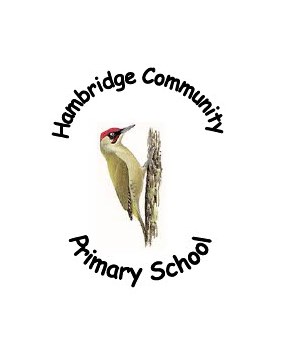Science
Statement of Intent
At Hambridge Primary School, our mission is to foster the full potential of every pupil as confident, capable learners with a genuine passion for science. We aim to empower our students with an understanding of the world around them, inspiring curiosity and encouraging them to engage in scientific exploration. Through inclusive and hands-on experiences, we provide a foundation for children to thrive in the ever-evolving world of science.
Aims
- To cultivate scientific knowledge and conceptual understanding.
- To foster curiosity and develop skills in working scientifically.
- To enrich students’ scientific vocabulary and support them in articulating scientific concepts clearly.
Progression and Delivery
Science education at Hambridge Primary begins in the Early Years Foundation Stage, where children explore Science through the “Understanding the World” strand. They work towards the Early Learning Goals, with Science integrated into “Understanding the World,” “People and Communities,” and “Physical Development.” In this phase, children observe animals, plants, and materials, noting changes and similarities. Outdoor learning and regular experiments provide opportunities for children to make predictions and explore the natural world.Throughout both the Early Years and Foundation stages, there is a strong emphasis on the Characteristics of Effective Learning, which foster critical thinking and scientific inquiry skills. These early experiences lay the groundwork for students’ scientific understanding and curiosity as they progress through their school journey.
From Year 1 through Year 6, Science is taught weekly, with each lesson based on clear learning objectives derived from the National Curriculum. This ensures a structured and coherent progression of scientific content. All lessons are rooted in the working scientifically skills.
In Key Stage 1, the focus is on allowing pupils to observe phenomena, exploring the natural and humanly-constructed world around them. Pupils are encouraged to ask questions, perform simple tests, and record their observations in ways that help them answer scientific questions.
In Key Stage 2, pupils broaden their scientific understanding, learning to use scientific language, ask pertinent questions, and set up practical inquiries or investigations. They gather and present data in various formats, including drawings, labelled diagrams, keys, bar charts, and tables. Pupils analyse their findings, draw conclusions, make predictions, and suggest improvements to their investigations.
To support consistent and progressive learning, scientific vocabulary is carefully selected from a progression document, ensuring that each unit builds on prior knowledge and prepares pupils for more complex concepts.
Tracking and Assessment
Science progress is closely monitored through regular assessments, comparing students’ work against the National Curriculum expectations. These assessments are documented in a document for each year group, providing a clear picture of each pupil’s understanding and their ability to apply scientific skills. At the end of Year 6, pupils’ science achievements are reported to the local authority, indicating whether they have met the expected standard for their year group.
Student Science Ambassadors
At Hambridge Primary, we believe in giving students the opportunity to take an active role in their learning journey, particularly in the field of science. To foster leadership and promote scientific enthusiasm, we have established a Student Science Ambassadors. These ambassadors are selected from Key Stage 2 and act as science role models within the school. They support teachers in delivering science lessons, lead science-focused activities, and help encourage a scientific mindset across the school community.
The role of Science Ambassador helps students develop essential skills such as communication, teamwork, and problem-solving, while also fostering a deeper connection to the subject. By empowering pupils to take ownership of their learning, we aim to create a positive and inclusive science culture throughout the school.
